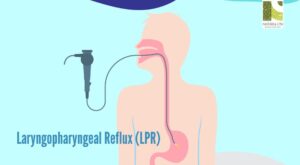What is an Allergy Test? Everything You Need to Know

Sneezing around dust? Breaking into hives after eating nuts? Struggling with unexplained wheezing or itchy eyes? If your body seems to be overreacting to certain substances, it could be an allergy — and an allergy test might hold the answers.
In this blog, we walk you through what an allergy test is, how it works, and why it might be crucial for your health and lifestyle.
What is an Allergy?
An allergy is your immune system’s exaggerated response to a usually harmless substance (known as an allergen), such as pollen, pet dander, foods, or medications.
What is an Allergy Test?
An allergy test is a medical exam used to determine whether your body has an allergic reaction to a specific substance. It helps identify which allergens are causing your symptoms — so you can manage them better.
There are two primary types of allergy testing:
- Skin Tests
- A small amount of allergen is introduced to your skin.
- Commonly used for airborne, food, and insect allergies.
- Quick results (within 20 minutes).
- Blood Tests
- Measures the amount of IgE antibodies your immune system makes in response to specific allergens.
- Useful if you can’t undergo skin testing due to medications or skin conditions.
What is an Allergy Blood Test Used For?
A blood-based allergy test (like ImmunoCAP or RAST) is used to:
- Diagnose allergies to foods, pollens, animal dander, insect stings, or medications.
- Determine the severity of allergic reactions.
- Support diagnoses of conditions like asthma, eczema, and anaphylaxis.
- Monitor effectiveness of immunotherapy or allergy treatments.
Why Do I Need an Allergy Blood Test?
You might be advised to get an allergy blood test if you:
- Have recurring nasal congestion, sneezing, or watery eyes.
- Experience hives, rashes, or eczema flare-ups.
- Suffer from digestive problems after meals (bloating, diarrhea, cramps).
- Show signs of asthma or wheezing.
- Had a severe reaction to insect stings or certain medications.
- Cannot stop medications (like antihistamines) that would interfere with a skin test.
- Have a skin condition like eczema or psoriasis that prevents accurate skin testing.
What Do the Results Mean?
Allergy test results typically show:
- The specific allergens your body is reacting to.
- The strength of the reaction, often graded on a scale from mild to severe.
- An elevated IgE level indicates sensitization, but doesn’t always mean you will have symptoms. Clinical correlation is necessary.
Example:
- Positive test for peanuts + no symptoms when eating peanuts = may not need treatment.
- Positive test for dust mites + ongoing sneezing, sinus issues = may benefit from treatment.
Your healthcare provider will interpret the results and may recommend:
- Avoiding specific allergens.
- Medication (antihistamines, corticosteroids).
- Allergy shots (immunotherapy).
- Lifestyle modifications.
Important to Know
- A positive result doesn’t always mean allergy — it may indicate sensitization.
- A negative result doesn’t rule out allergies completely.
- Diagnosis should always combine test results + symptoms + medical history.
Allergy testing isn’t just about identifying triggers — it’s about regaining control over your health, your environment, and your quality of life. With better insight, you can manage symptoms and prevent complications.
If you’re experiencing persistent allergy-like symptoms, talk to your healthcare provider about getting tested. Early detection is the first step to long-term relief.





